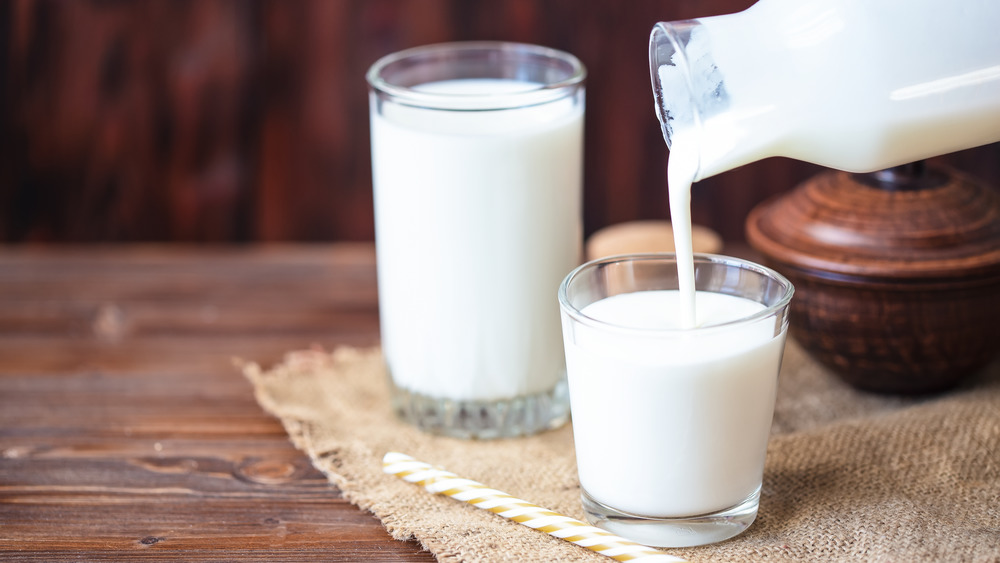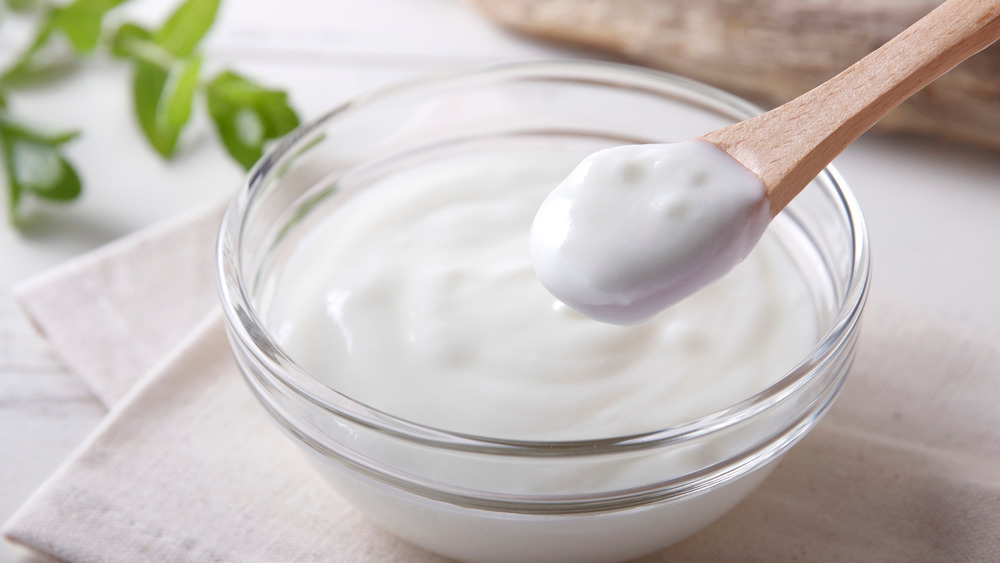Can You Eat Dairy On The Whole30 Diet?
If you're considering trying the Whole30 diet for a month, be prepared to give up ice cream, whole milk, cheese, and even yogurt. That's right — even nutrient-rich, protein-packed snacks like kefir and Greek yogurt are banned for the 30-day duration of the diet (via Whole30).
The diet, created by Melissa Hartwig Urban, claims to help eliminate cravings, identify intolerances, and change one's relationship with food over the course of 30 days. Dairy is just one of the categories eliminated in the program: Gluten, added sugars, legumes, and processed foods are also eliminated. This means focusing on whole, unprocessed foods for the duration of the diet, which typically includes vegetable-heavy plates paired with an animal-based protein.
Don't try to use fake dairy options, either. The Whole30 plan also recommends banning dairy substitutes like coconut yogurt or almond milk as well as things like baked goods made with Whole30-allowed ingredients, since part of the diet's aim is to force you to eat more whole foods and let go of attachments to old favorites that cause cravings.
Is there a less restrictive approach?
Remember: The Whole30 is a restrictive elimination diet that shouldn't be attempted without consulting a doctor or dietitian. In fact, Good Housekeeping expert and registered dietitian Jaclyn London recommends skipping the diet entirely in favor of simpler, healthier switches and diet tweaks. For dairy, she's a fan of leaving items like Greek yogurt in your grocery cart and simply limiting sugar-laden dairy products. "Just skip dairy products with added sugar, like milk-based bottled smoothies or sweetened yogurts that contain sneaky added calories," she writes.
The good news is that if you do opt to try the Whole30 diet, after the 30 days of this elimination diet are done, you are allowed to slowly reintroduce certain foods, like dairy, back into your diet and assess whether or not your body tolerates them. So it may not be a permanent shift. And you may realize that certain dairy products, like hard cheeses, don't agree with your body, but probiotic-rich kefir or yogurt leave your gut feeling great. Or, if giving up cheese for the month seems too hard, you could just follow London's recommendation and if you believe you do have a lactose intolerance, simply give up dairy for two weeks and see how you feel.


